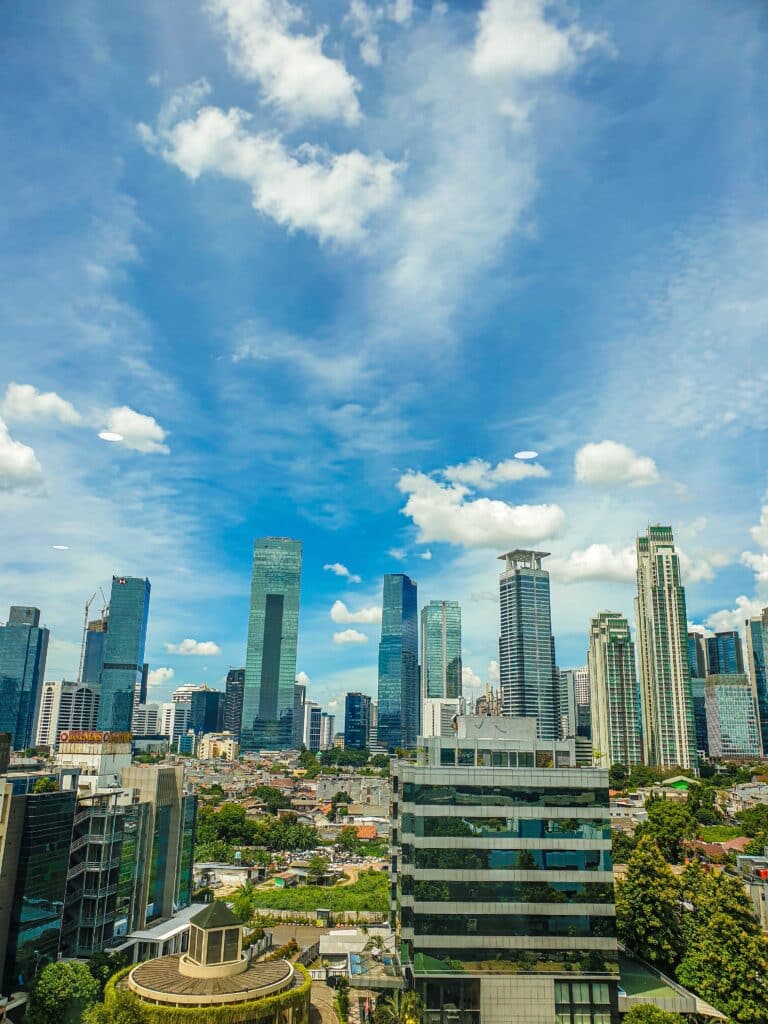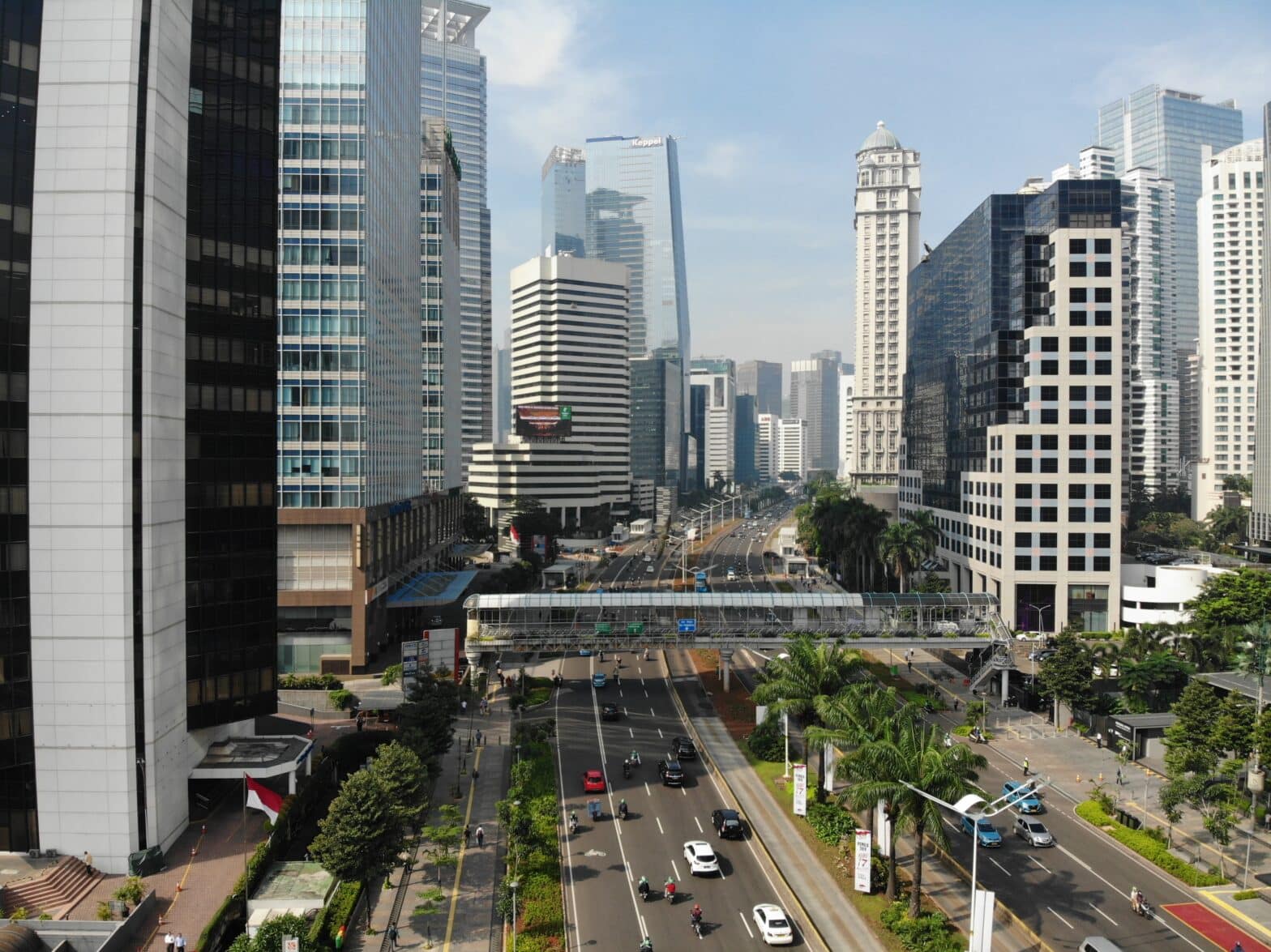Thousands of expats have set sail for Indonesia, one of Southeast Asia’s largest archipelagos. The destination attracts many families, digital nomads and entrepreneurs from France and elsewhere looking for a complete change of scenery, in a country where traditions are still very much alive.
In this guide, Foyer Global Health paints a portrait of this unique country and gives you all the information you need to start your future expat life in Indonesia.
Living in Indonesia: choosing the right visa
For a simple trip to Indonesia, you can obtain a tourist visa valid for 30 days, which will enable you to discover the region without having to work there.
Foreigners wishing to settle in Indonesia for work purposes / for a stay of more than 60 days will need to acquire a temporary residence permit, with the possibility of converting it into a permanent permit at a later date:
- The KITAS visa (Kartu Izin Tinggal Terbatas): this is the Indonesian temporary residence permit which can be issued on condition that a sponsor (family or employer, for example) applies for the visa at the Directorate General of Immigration in Jakarta. The KITAS must be obtained in the beneficiary’s province of residence. You can find the list of immigration agencies on the official website. The KITAS residence permit is valid for a maximum of 5 years.
Comme recommandé par les services d’immigration locaux, le moyen le plus simple d’accéder au KITAS est d’obtenir au préalable un VITAS (Visa Izin Tinggal Terbatas) qui s’apparente à un visa intermédiaire d’un an renouvelable. La demande d’un VITAS requiert aussi la recommandation par un sponsor, et la documentation requise dépend de votre situation.
La conversion du VITAS en KITAS est très commune en Indonésie pour les expatriés qui veulent rester dans le pays sur le long-terme.
- The KITAP visa (Kartu Izin Tinggal Tetap): Needless to say, this permanent residence permit is the grail for any resident of Indonesia. The conditions for obtaining the KITAP depend on the status of the beneficiary: investor or employee working and living on Indonesian territory for at least 5 consecutive years and in possession of a KITAS, person married to an Indonesian citizen (in this case, the application can be made after only 2 years)… The procedure for obtaining this visa is similar to that for the KITAS. The KITAP is valid for 5 years and is automatically renewed. In the case of a marriage lasting more than ten years, the visa is valid for life.
In addition to these options, the government is said to be preparing the launch of a “digital nomad” visa, valid for 5 years and tax-exempt…Stay tuned!
Obtaining a visa with a work permit
The IMTA (Izin Mempekerjakan Tenaga Kerja Asing) is the basic requirement for obtaining a VITAS or KITAS visa. You need to work for an Indonesian company, which will ask you to provide certain documents to apply to the Ministry of Employment.
In short, the IMTA work permit gives you the right to work in Indonesia, while the VITAS and KITAS residence permits allow you to live in the country. Although the two documents are linked, they both have different functions, and you will need to renew your IMTA independently of the residence permit to continue working.
Thus, the complete process for an expat in Indonesia is to obtain the IMTA, the VITAS, the KITAS and then eventually to convert the residence permit into a KITAP.
Finding a job
The main job prospects are generally in the big cities, such as the capital Jakarta, Bandung or Surabaya. The most promising sectors are, unsurprisingly, tourism, manufacturing, mining, technology and engineering. There is a strong demand from foreigners for English-language teaching positions.
If you don’t manage to find the job of your dreams, don’t hesitate to visit popular job search sites such as JobStreet, LinkedIn, Jobsinjakarta.com… Or consider more original careers, in gastronomy for French expats for example, or water sports or diving if you already have skills in this area!
In terms of remuneration, the average salary is lower than in some of our Asian neighbors, but most expatrs manage to build up sufficient income to live comfortably in Indonesia.

The cost of living

If you move to Indonesia, you can expect prices comparable to those in the Philippines… but two to three times cheaper than in Singapore. In 2023, the cost of living in Indonesia remains very affordable, although it has risen by around 20% in the last ten years.
The biggest expenses are for electricity and water, due to the higher costs of production and delivery in an archipelago, and the haphazard management of public services.
When it comes to housing, Jakarta remains the most expensive city, but at rental prices that are still more affordable than those found in Europe. Bali is an expat’s dream, but the reality is that prices aren’t that attractive in this region if you’re looking for decent accommodation with a certain level of comfort. To help you in your search, don’t hesitate to check out well-known real estate websites such as Rumah.com.
The healthcare system
Medical care in Indonesia varies from city to city and province to province. The main hospitals are located in the capital Jakarta. It is in these private establishments that Indonesians have access to the best quality care. In public facilities, health services are defective and mediocre. Added to the limitations of the Indonesian healthcare system are the health risks that require locals and expats alike to take extra health and hygiene precautions. For a worry-free expatriation, you are strongly advised to take out international health insurance to protect your health not only during your stay in Indonesia, but also when traveling elsewhere in the world.
Where to live in Indonesia?
Indonesia’s islands offer a wide choice of places to stay, each with its own charm and characteristics:
- Jakarta : Living in Southeast Asia’s largest metropolis means discovering lively neighborhoods and a surprising nightlife, interacting with a welcoming local population, but also slaloming daily through a jungle of motorcycles… Life in Jakarta therefore promises many opportunities for active expats, but it can be exhausting for families with young children who want peace and quiet.
- Bali : The Island of the Gods is certainly the best-known island in the archipelago, and a must-see destination for tourists (especially when visiting Ubud). Entrepreneurs and freelancers from all over the world gather in the coastal town of Canggu. If you’re looking for a long-term home, we recommend you read up on the subject or read other expat testimonials, especially as the cost of living can be higher here due to the island’s popularity.
- Bandung : It’s certainly the favorite city of expats, who appreciate its excellent quality of life, low prices and relaxed atmosphere. A good alternative for families who want to make the most of their expatriation on a reasonable budget.

Indonesian culture at a glance
Indonesia is a country of varied cultural practices, marked by tradition and religion. Almost 90% of the Indonesian population is Muslim. In Bali, Indonesians are more inclined towards Hinduism. In Java, Sumatra and Kalimantan, different ethnic groups practice their own codes and regional languages. It’s also a country that leaves room for foreigners to fit in. Local populations are open to other customs, as long as they are not disturbed in the practice of their own. Indonesian hospitality is sincere: a local will not hesitate to act as a guide to a newly arrived foreigner, to show him the way, or simply as a sign of mutual support. In short, Indonesian culture encourages exchange and sharing at every level.
Have you made up your mind? Consult our experts and receive a free quote for our international health insurance offers in Indonesia and Bali!
